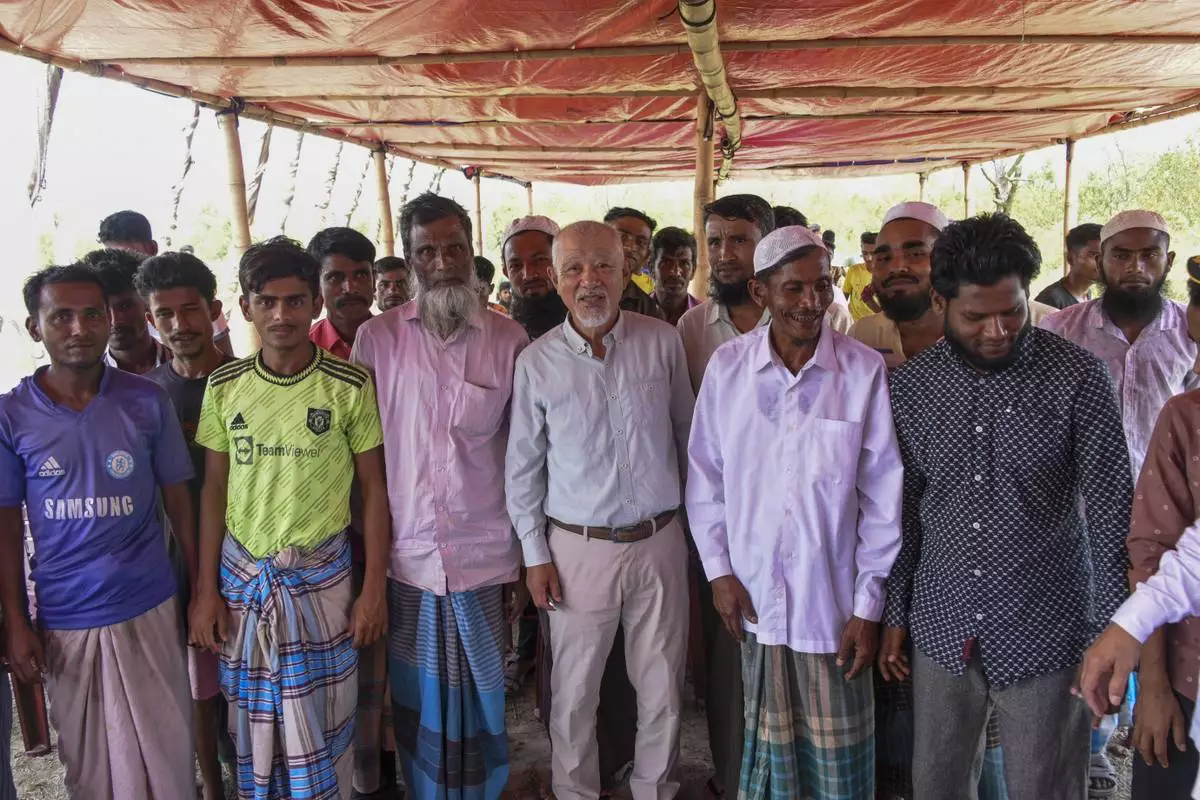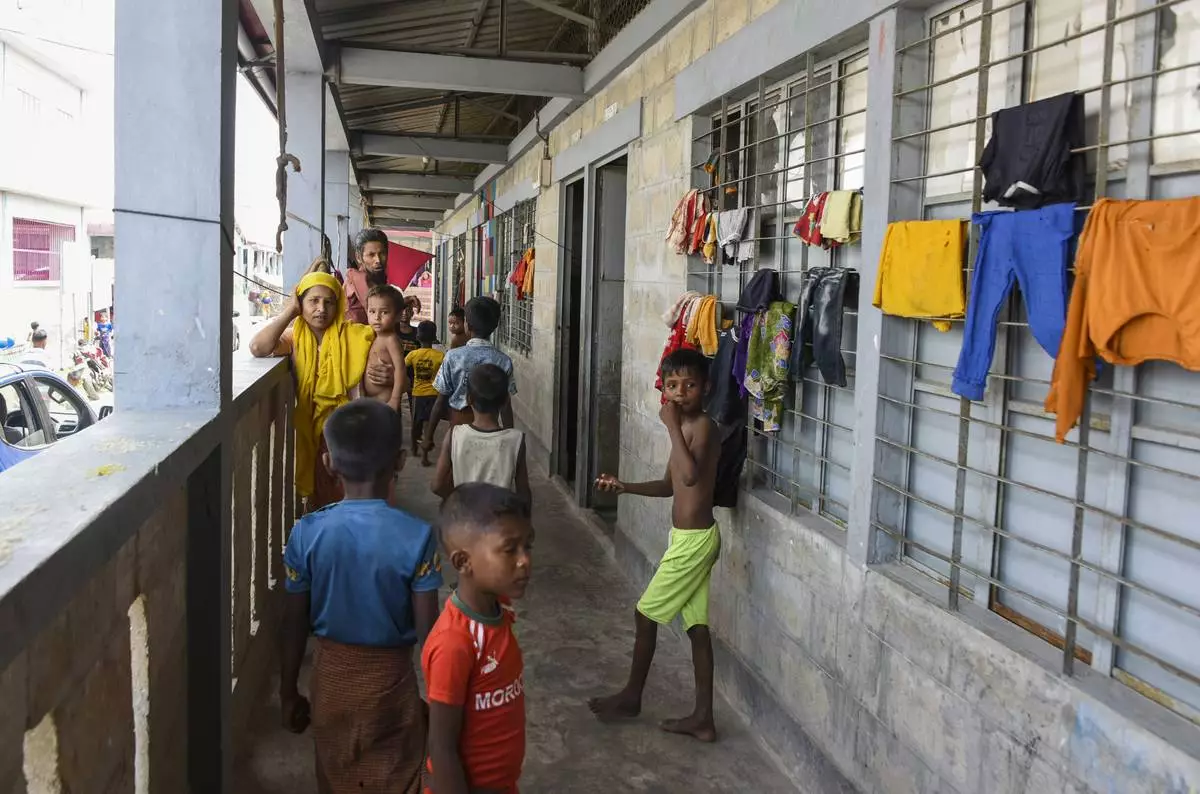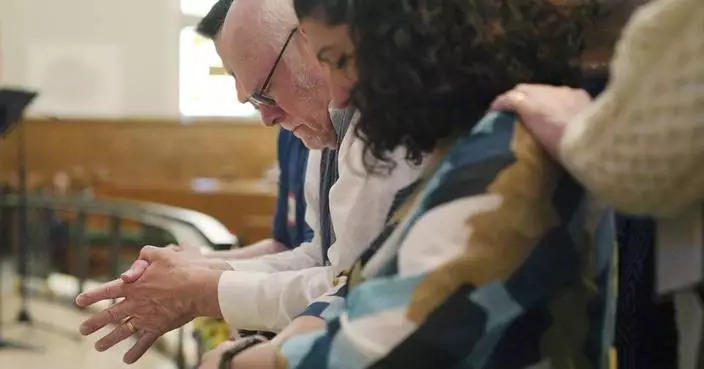DHAKA, Bangladesh (AP) — Japan's Nippon Foundation will spend $2 million to help move tens of thousands more Rohingya refugees to a remote island in Bangladesh and provide them with skills training, the charity's chairman said.
Speaking to The Associated Press on Sunday after a visit to Bhashan Char, Yohei Sasakawa praised the support the government has provided to refugees on the island and said it's a step toward returning them to Myanmar.
Some 700,000 Rohingya fled Myanmar for Bangladesh after August 2017, when the military in Buddhist-majority Myanmar began a harsh crackdown following an attack by insurgents. The crackdown included rapes, killings and the torching of thousands of homes, and was termed ethnic cleansing by global rights groups and the U.N., while the United States called it genocide.
Efforts to repatriate refugees to Myanmar under a 2017 agreement meditated by China have failed at least twice, and seem only more distant as the security situation worsens. Fighting has spread across much of Myanmar as the ruling junta loses ground to rebel and separatist groups in the country's long-running civil war.
Sasakawa, who also serves as Japan’s Special Envoy for National Reconciliation in Myanmar, said that they'll need jobs training to return: “After their return to Myanmar, if they have no skill whatsoever, then they would end up living poorly in the country. So having the skill training in Bhasan Char is going to help them greatly.”
The Nippon Foundation will fund moving some 40,000 Rohingya to the island, Sasakawa said.
While Bangladesh’s Prime Minister Sheikh Hasina says the refugees will not be forced to return to Myanmar, she's urged the international community to put pressure on the Buddhist-majority country to make safe return possible. More than a million Rohingya refugees live in crowded camps near the coastal city of Cox's Bazaar along the border with Myanmar.
Bangladesh's effort to relocate refugees to Bhasan Char — a low-lying island that was sometimes wholly submerged during monsoons — was initially opposed by the U.N. and many refugees, but it's won acceptance as the first groups have settled in. An increasing number of Rohingya have agreed to make the move, and the U.N. and U.S. have committed funds to support the program.
“I was … quite impressed about how much support was given … in Bhasan Char island," Sasakawa said. “And that support was being provided from the Bangladesh government, although the government itself is experiencing a very difficult fiscal state.”
The government has built a 10-kilometer-long embankment to protect the island from flooding, he says, as well as schools, hospitals and mosques, powered by solar energy.
Sasakawa, who visited Myanmar more than 150 times in recent years, said that the ultimate solution to the Rohingya crisis is their repatriation, but Myanmar’s return to democracy is also important.
In Rakhine state, from where more than 700,000 Rohingya Muslims fled to Bangladesh in 2017 amid chaos, rebel group Arakan Army has been attacking the government forces seeking autonomy.
Sasakawa said that the ethnic conflicts that have divided Myanmar for decades could be resolved under a return to democracy. “They wish down the road in the future to build a united Myanmar, meaning that the ethnic armed groups have no intention of becoming independent from Myanmar."
Sasakawa said the regional bloc ASEAN — of which Myanmar is a member — should take the central role in engaging Myanmar.

Japanese philanthropic group Nippon Foundation's Chairman Sasakawa Yohei, center, poses for photographs with Rohingya refugees during a visit to Bhasan Char island in the Bay of Bengal, in Bangladesh, Saturday, April 6, 2024. Japan's Nippon Foundation will spend $2 million to help move tens of thousands more Rohingya refugees to the remote island in Bangladesh and provide them with skills training, Sasakawa said. (Nippon Foundation via AP)

Rohingya refugees at one of their camps at Bhashan Char island, Bangladesh, Saturday, April 6, 2024. Japan's Nippon Foundation will spend $2 million to help move tens of thousands more Rohingya refugees to the remote island in Bangladesh and provide them with skills training, the charity's chairman said. (Nippon Foundation via AP)

Rohingya refugees engage in a fishing activity at Bhashan Char island in the Bay of Bengal, Bangladesh, Saturday, April 6, 2024. Japan's Nippon Foundation will spend $2 million to help move tens of thousands more Rohingya refugees to the remote island in Bangladesh and provide them with skills training, the charity's chairman said. (Nippon Foundation via AP)

Japanese philanthropic group Nippon Foundation's Chairman Sasakawa Yohei, carries a lamb during a visit to Bhasan Char island in the Bay of Bengal, where thousands of Rohingya refugees are living in Bangladesh, Saturday, April 6, 2024. Japan's Nippon Foundation will spend $2 million to help move tens of thousands more Rohingya refugees to a remote island in Bangladesh and provide them with skills training, Sasakawa said. (Nippon Foundation via AP)










